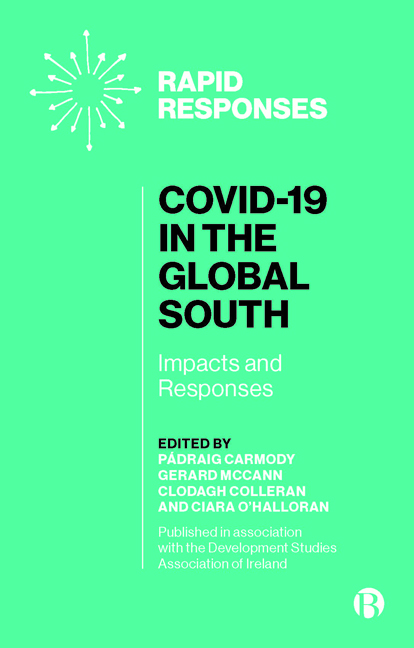Conclusion
Published online by Cambridge University Press: 23 March 2021
Summary
The COVID-19 pandemic is rapidly evolving. Its impacts have ranged from taking lives to geopolitics with governments engaging in a bitter war of words (and actions) around mitigation and other issues. This disunity is causing concern across the world, not least in the UN system, although it is better that this is being played out in public spats rather than in violent conflict (Steiner, 2020). As Florini and Sharma (2020) argue, the 21st century is set to be one of ‘massive disruptions’ posing serious threats to society. These range from potential political turmoil to financial fragilities, coupled with climate disruption. COVID-19 has demonstrated the imperative of effective, financed international cooperation to solve or remediate these global challenges. However, the prospects for enhanced international cooperation seem to have diminished in recent years as a result of dialectics of globalization.
The spatial dynamics of liberalization, offshoring and corporate greed have generated reactionary backlashes in some developed economies, such as the US and UK. The rise of right-wing populism globally has been associated with the politics of anti-globalization and protectionism (Gereffi, 2018; Kiely, 2020), and Baldwin (2019) predicts that these tendencies will intensify as middle-class professions are gutted by the technologies of the Fourth Industrial Revolution (4IR), generating further pressure towards ‘shelterism’ and ‘me first’ economic policies. These developments could then be further securitized in relation to climate change impacts – an already extant trend (Andersson, 2019; Buxton and Hayes, 2016). To avoid this dystopian, climate-altered and unequal future, we need to both rethink and reinvigorate institutions of global governance to effectively address the challenge of sustainable development, including pandemic prevention and preparedness. This systemic redesign must be both values-based and outcome focused. Simply returning to the ‘old normal’ scenario will not be enough to enhance human welfare into the future. Because ‘we know that pandemics, economic crises, and environmental instability will hit hard, but we cannot predict exactly where or when, we need to give resilience’ of systems more importance (Florini and Sharma, 2020: 50– 51). We also need to reorient them so that they serve to achieve desirable outcomes – such as sustainability, equality and human development. How might this developmental ‘new normal’ be achieved?
- Type
- Chapter
- Information
- COVID-19 in the Global SouthImpacts and Responses, pp. 193 - 196Publisher: Bristol University PressPrint publication year: 2020



